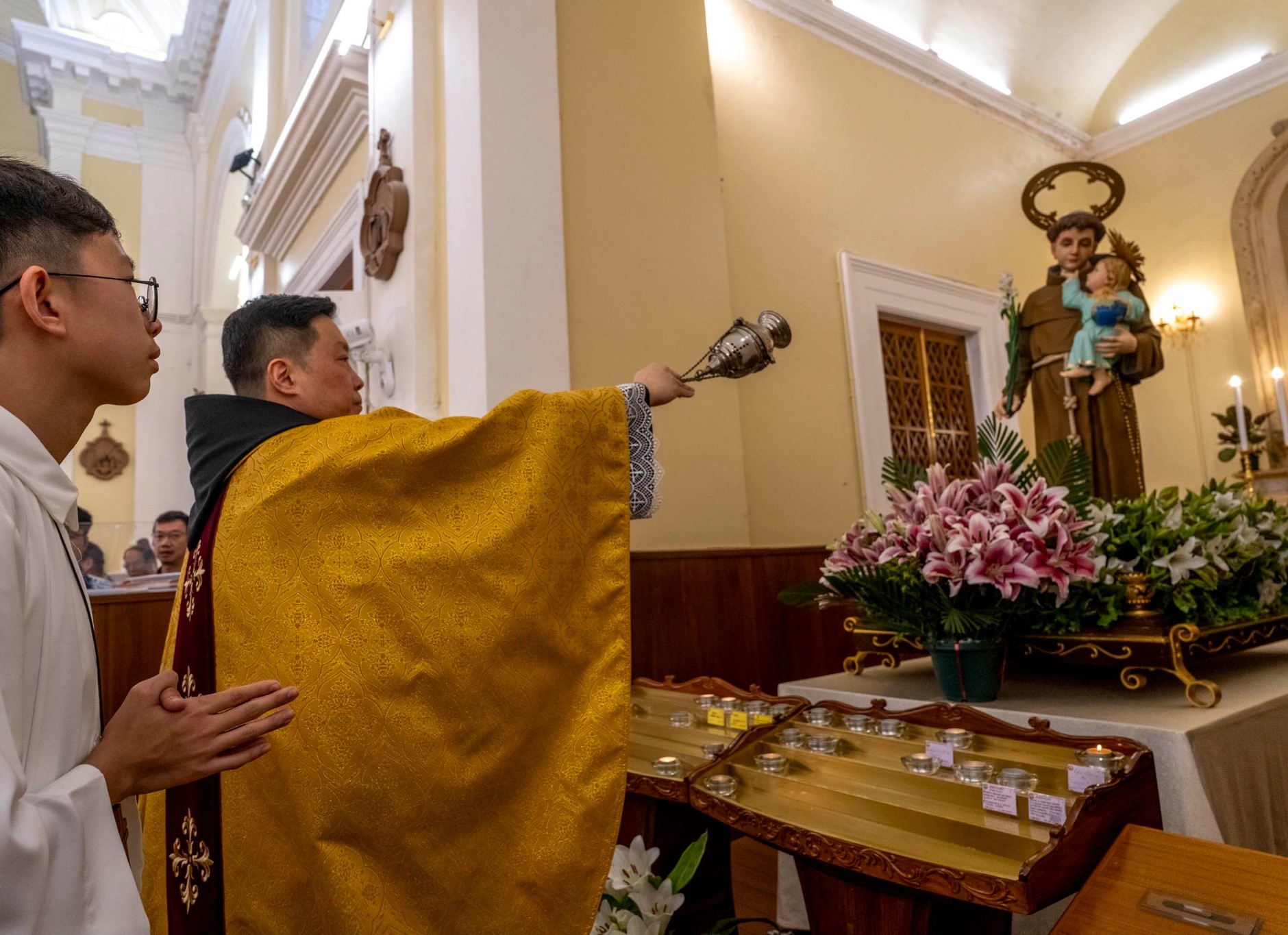Marco Carvalho
The Diocesan Commission for Life wants to get local Catholics talking about death, and the emotional and spiritual impact associated with the loss of a loved one. The commission organized at the auditorium of the Diocesan Centre a lecture on the experience of grief and the challenge of coping with bereavement and change.
K C Leung, a well-known family therapist from neighbouring Hong Kong, was the invited guest speaker. Mr. Leung made use of two books for young children to approach and address the difficult subject of grief with sensitivity and sound judgement.
Death and mourning are still subjects that are avoided, ignored or denied. The main purpose of the talk was to promote an in-depth discussion about grief and to break the taboo that surrounds the end of life and the loss of a loved one.
“The lecture was led by K C Leung, a family therapist and marriage counsellor. Mr. Leung is a member of the American Association of Marriage and Family Therapy, and he has extensive experience in fields such as couples therapy, family therapy and death education. One year ago, the five audio-visual sessions that Mr. Leung shared with the Commission were very well received by the local public. Many of those who followed the video sessions showed an interest in deepening their knowledge on this matter,” the Diocesan Commission for Life told O Clarim.
“We decided, therefore, to invite K C Leung again, so that he can provide training to all those who wish to support and comfort people who are dealing with loss, bereavement and grief. We believe that with his help and his teachings and through the sharing of experiences, participants felt more motivated to offer their contribution to a society guided by a greater spirit of companionship,” the Commission added.
The reading of two children’s books was of fundamental importance in Mr. Leung’s lecture. The books – Someday by Alison McGhee and Peter H. Reynolds and Badgers’ Parting Gifts by Susan Varley – were selected by the speaker because they address themes as complex and intricate as aging, death and the passage in a light and delicate way.
“Children’s books often use simple and easy-to-understand language as well as illustrations that help readers assimilate the message. Through the reading of these two books, the speaker aims to invite the participants to reflect on the meaning and value of life and, ultimately, to approach death without fear or any sort of estrangement. The purpose is to help participants to better understand mourning, loss and the vulnerability that defines our earthly existence,” the Diocesan Commission for Life explained.
“For instance, the protagonist of Badgers’ Parting Gifts is an old badger, very wise, who tends to help everyone around him and who is deeply respected and loved by the remaining animals of the forest. The badger faces the inevitability of death with a positive attitude. He often tells his friends that he hopes that no one will feel sorry for him when he dies,” the organization illustrated.
(Photo: geralt@Pixabay.com)


 Follow
Follow


